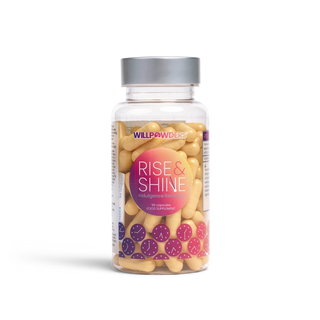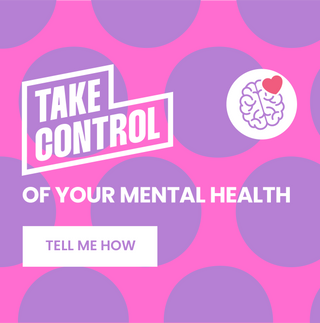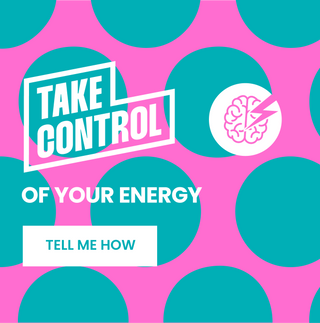

Why the f*ck can’t I sleep?
Cortisol control
Hack your sleepy hormones
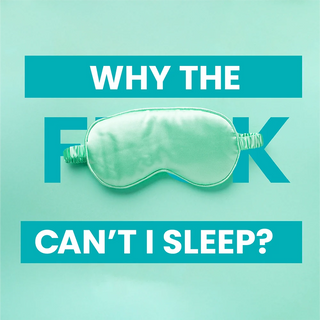

You’re knackered, but you’ve still had the chance to replay your life three times since midnight. You’ve binned off doom-scrolling into the early hours, yet still… no sleep. What gives?
Here’s the thing: your body wants to sleep. It’s biologically hardwired to follow a circadian rhythm – a 24-hour internal clock that tells you when to wake, sleep, and function like the chief curator that you are. But modern life? It's against us. Blue light, stress, inflammation, the caffeine that gets you through – all of it scrambles that natural rhythm and leaves you staring at the ceiling, counting regrets instead of sheep.
Getting your circadian rhythm back on track isn’t about meditating on a mountain. It’s about understanding what screws it up in the first place, and learning the levers you can pull to get it back on your side.
Here’s what might be messing with your rhythm – and what to do about it:
- Light at the wrong time – your brain treats light like a schedule. Blue light after dark tells it to stay awake. The fix? Dim your lights at night and get outside in the morning. Sunlight first thing is your body’s favourite alarm clock, triggering your cortisol when you want it.
- Stress and inflammation – chronic stress doesn’t just make you feel fried. It drives up inflammation, which can wreck sleep quality and disrupt your internal clock. Anti-inflammatory habits like breathwork, infrared saunas, cold showers, or a magnesium boost can help calm the chaos.
- Late-night stimulants – that innocent-looking espresso late in the afternoon? It’s still partying in your system hours later. Try limiting caffeine mid afternoon, or mitigate against it by double dropping some L-Theanine and see if your brain stops throwing tantrums in the evening.
- Weird sleep/wake times – sleeping in on Sundays might feel like justice, but your circadian rhythm sees it as betrayal. Try to wake up at the same-ish time every day (yes, even on weekends!).
Tiny tweaks. Big payoffs. Your circadian rhythm wants to help – it just needs you to stop flipping the script.
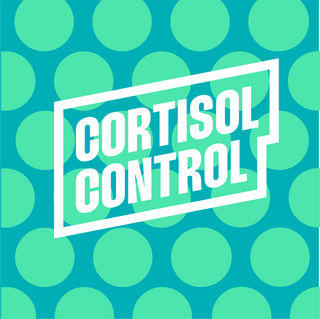

Let’s clear something up: cortisol isn’t the enemy. It’s your “get sh*t done” hormone – meant to spike in the morning, power you through the day, and gradually taper off so you can sleep. But when it’s constantly peaking – late at night, after meals, during meetings – it turns into a total saboteur.
Your body takes cues from everything you feed it – food, stress, screens, vibes. Wrong input? Cortisol spikes. Again. And again. And again.
To sleep, you’ve got to tame your nervous system and control the inputs. Here’s how:
- Eat like you mean it – good fats feed your gut and fuel serotonin, your feel-good, sleep-promoting neurotransmitter. Eat carbs strategically: Focus on good fat and protein during the day and save carbs for supper. That “carb coma” will derail you during the day, but lull you into rest at night.
- Gut health = brain health – your gut makes 95% of your serotonin. Feed it well. Think fermented foods – they help to regulate your mood and support better sleep.
- Cold water therapy – a morning cold plunge sharpens your circadian rhythm, regulates cortisol, and gives you a dopamine kick to boost mood and focus. It also chills inflammation and calms the vagus nerve, which means deeper, less interrupted sleep.
- Saunas (infrared) – Heat therapy reduces cortisol, supports dopamine pathways, and boosts brain-derived neurotrophic factor (BDNF) – fertiliser for your brain cells. You get relaxation, hormone balance, and a mood upgrade in one sweaty hit.
- Support with supplements – Collagen, loaded with amino acids, like glycine, help to calm the nervous system and prepare your brain for sleep – a foundation for your serotonin production.
- Have a good cry – Emotional tears literally release cortisol. Cry it out, reset your nervous system, and let dopamine take over. Clean slate.
Modern life may be chaotic, but your nervous system doesn’t have to be. When cortisol calms down, serotonin and dopamine step in. And when that happens, sleep switches on. Simple as that.


Nicola Found her WillPowder's Way


Change can happen if you are patient and consistent! I sleep better… my mood is far better!
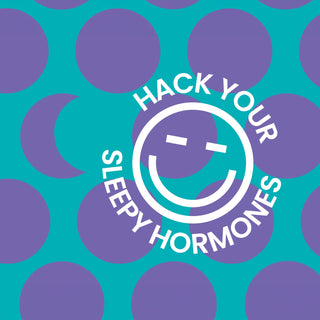

If cortisol is your internal alarm clock, melatonin is your lullaby. Melatonin helps you wind down, drift off, and stay asleep without thinking about that one email you sent in 2019.
Melatonin is made from serotonin – your feel-good neurotransmitter. No serotonin? No melatonin. What helps serotonin production? Sunlight, gut health, and a well-regulated nervous system. It’s all connected – always is.
And let’s not forget about oestrogen and progesterone. These two support sleep regulation too. Oestrogen supports serotonin and REM sleep, while progesterone is naturally calming – consider it a hormonal chill pill. When they fluctuate, like during your cycle, perimenopause, or menopause, sleep often takes a hit.
The good news? You can support these hormones naturally:
- Eat for your hormones – good fats, like olive oil and grass-fed butter, help transport and build hormones like oestrogen and progesterone. Balanced blood sugar means balanced hormones.
- Avoid hormone disruptors – environmental nasties (think plastics, synthetic fragrances, and ultra-processed food) can throw off your natural oestrogen and progesterone levels. Ditch what you can. Your sleep will thank you.
- Manage cortisol like a pro – high cortisol doesn’t just block melatonin – it also messes with oestrogen and progesterone, throwing your entire sleep system into chaos. Tame it, hack it, control it. Smart stress management works with your body, not against it.
You’re better than broken sleep, burnout, and brain fog.




 Collagen
Collagen
 Protein
Protein
 MCT
MCT
 Electrolytes
Electrolytes
 Vitamins & Minerals
Vitamins & Minerals
 Hormones
Hormones
 Nootropics
Nootropics
 Kombucha
Kombucha
 Biohacking Books
Biohacking Books
 Bundles
Bundles
 Accessories
Accessories






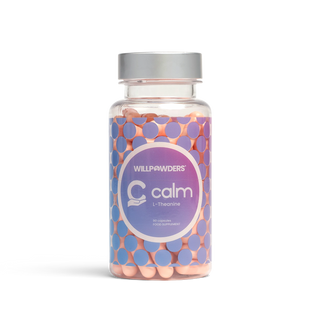

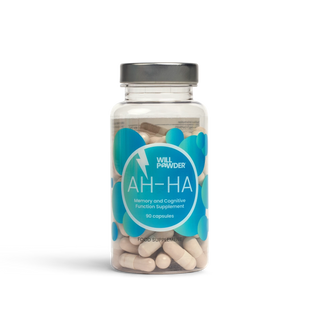
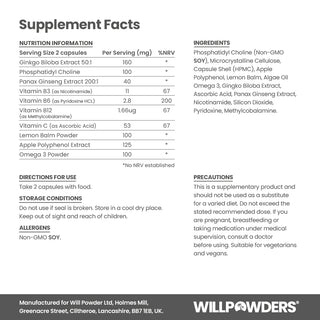




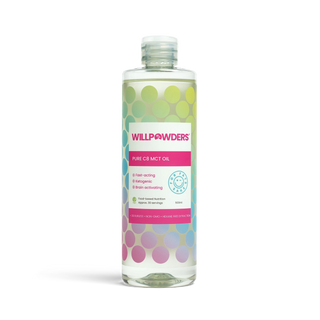

 5 mins
5 mins
 Easy
Easy


